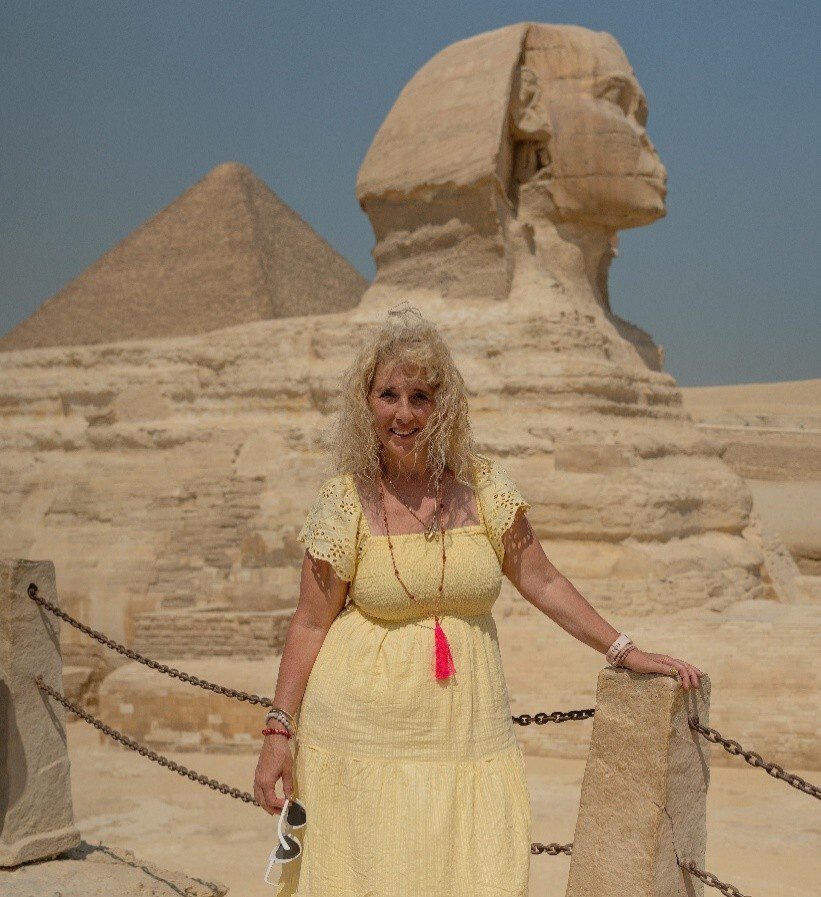
Parenting – Am I Doing a Good Job?
Parenting – Am I Doing a Good Job?
(Duality: right wrong/good bad)
This is a question I started to ask myself almost before my first child was born. I reckon it took me until my younger daughter was 20 (so 24 years in total) before I could confidently say yes.
The expectations I placed on myself were high; I would intuitively know what my crying baby needed, she would sleep peacefully through the night from a very early time, I would feel confident as a mother and love every moment I spent with her.
Reality check time: within a few days of taking my daughter home from hospital, I got a bad bout of flu, my nipples were cracked and sore and I found being alone in the house (with my tiny new baby) stifling, and lonely.
As the weeks progressed the loneliness visited me frequently, leaving me feeling quite depressed at times. Not clinically so, and not even severely, but enough to make me question why I had been so excited to give up my working life to have a baby.
My mother-in-law had drummed into me the importance of 4-hourly feeding, not ‘spoiling’ my baby with too many cuddles, and the importance of making myself ‘look nice’ for when my husband came home from work at 6.30 (at that stage). I felt so guilty if, on his arrival, I hadn’t made the bed/washed up/brushed my hair and put on lipstick and perfume (the latter coming straight from the 1950’s housewife guide via mother-in-law).
But fortunately my husband loved my daughter’s bath time, was and still is a champion washer upper, and loves me whatever state my hair is in. And he prefers to kiss me without sharing my lipstick. But it did take a long, long time to stop the guilts.
I compared myself to other new mums, I desperately tried to keep the routine for my daughter going no matter what was happening and when I reflect on it now all these years later, I think I was challenged by loneliness most of all. I had friends for sure and we spent a lot of time together at each other’s houses, and my mum in those days wasn’t too far away, but I took it all so seriously, striving for perfection and order and some kind of fulfillment.
I forgot to play. The clock ruled my life for those early months. And I judged myself all the time. My husband didn’t enjoy that time much either as he felt unimportant, surplus to requirement and mainly clueless as to what he could do to be involved with the new tiny person who had moved in with us (he grew to be pretty good on nappies and bath time but never coped well with vomit).
As she grew up, we had more fun. She was a ‘good girl’ and as I had another interest in running a small business, the balance MI heart, pineal) that brought came also with a sense of satisfaction and honoured my needs as an adult. But that high expectation was still there in terms of my performance measured by her behaviour. What would people think? I made constant comparisons with her development and fine motor skills and even size. I remember the community children’s clinic nurse asking if I was concerned about her size and feeling angry that I had to justify it in relation to the height of her parents, grandparents and great-grandparents. Boy did I feel bad (for reference neither of my daughters quite made my height of 1.60 and I’ve given up worrying now they’re in their twenties). The constant feeling of being judged (and judging others) was exhausting and on the inside my insecurity grew although only probably my husband knew that.
My second daughter was born when my elder daughter was almost 4, and suddenly things felt very different. I loved the busy-ness of two children. Fortunately, the baby was happy to be plucked out of her cot and, unchanged and unfed, accompany me on the run to nursery school (kinder). The organisational requirements at this time gave me a structure I really enjoyed. It focused me on being present and whilst I often didn’t get much done, I learned to accept that and roll with the punches. It’s around this time that I took some of the pressure and expectation off myself. We had moved, but were forming a wonderful new group of friends between us, my husband’s career was in its prime, and I felt more confident overall, but especially with my parenting skills.
We had some challenges when my elder daughter was in primary school. She was one of 3 girls in a class with 18 boys, and the 2 other girls had known each other since birth. She felt left out, and lonely, she didn’t excel in her lessons and her confidence began to fade. So there we were, the voice of our daughter, feeling like we were helpless. The teachers tried to assure us that all was fine, but we knew it wasn’t. We saw the cracks starting to appear as each week went by despite her putting on a brave face. But it’s hard for anyone to truly hide what is going on inside. Her behaviour changed, she wasn’t as patient and kind to her little sister, and she was rude to us and eventually to my mother-in-law. That was the signal we needed to do something and consider our options. So we needed to step up and look at making a brave decision. This decision had implications for our way of life, financial security and future decisions that would involve both of the girls. She moved to a different school; all girls, nurturing environment, beautiful friends and she started to shine. Change is good.
So what is it about that decision that resonates so much with me today? I listen to, and observe parents, reluctant to really see what is going on for their child. A fear perhaps of really understanding them. Years later, in a different country and with a different daughter, we faced a similar event. But this time it was during year 10; much distress, crying and anxiety which our daughter was herself unable to put into words. We were frightened too. We didn’t know if we could fix the problem as easily as we had done years before. This daughter was a boundary pusher, and fiercely independent from the age of about 12 or 13 when she changed overnight from ‘you can never give me enough hugs’ to ‘please don’t hug me unless I initiate it’. She liked to party and experiment and we spent a lot of time worrying. But we also talked. We kept the communication open as much as possible. Driving is always a great time so that eye-to-eye contact is not needed. We started to recognise that she would open up when she felt like it, and not when we wanted her to. We trusted her, because if we didn’t trust and respect her, why would we expect her to trust and respect us? We listened. We didn’t always understand (MI ears), and sometimes we would react and become angry, but we did our best to allow us all space to process, and to introduce options to her. We hit a crisis point when the tears turned towards hysteria and we all felt her heartache. She felt stuck and the only way forward seemed to show her ways of becoming unstuck. So, she moved school at the end of year 10 and completed her final two years in a bigger, and for her, more balanced environment. So many friends asked us why we were letting her / making her move. They couldn’t understand why we would move her from ‘such a good school, with a great reputation’. But it wasn’t about us. She needed us to let her make the choice. She knew it was a risk but it was up to her to respond to that in the best way possible. We trusted her. And we believed in her. That Christmas she gave me a teddy bear wearing the new school ribbons. She thanked us profusely for letting her move school, and she continued to do so over the months ahead.
Both my daughters have taught me so much and we have found the way to navigate many challenges together, in as much of a heart-based way as possible; with awareness of one another, with love and respect of ourselves and others, with the intention of finding a way to peace through co-operative action. Does this mean we have done/are doing a good job? Good or bad? Right or wrong? Let’s step out of the duality and into the energy of the Absolute as taught through all Millennium Education courses. It just is. We have responded, reacted, avoided, worried, adapted, released, grieved, protected, tolerated (and not), nurtured and nourished, but we’ve just been us. We have given of ourselves, and continue to do so, in the way that we feel is the most appropriate for us, for our children. We have done our best to give them first roots, then wings to venture out into the world. And now we are assimilating it being the two of us again, with strong foundations and a framework for life where we all allow ourselves the freedom for a meaningful and rewarding life.
 |
Rachel Gallon livelifekinesiology@gmail.com
|




